Car detailing is an essential service for car enthusiasts and everyday drivers alike, aiming to maintain the vehicle’s aesthetic appeal and extend its lifespan. As we move into 2024, the cost of car detailing varies widely based on several factors, including the type of service, location, and specific needs of the vehicle.
Understanding these variables can help you make an informed decision and ensure your car receives the best care possible.
Table of Contents
What Is Car Detailing?
Car detailing is a thorough and meticulous cleaning, restoration, and finishing process for a vehicle, both inside and out. Unlike a regular car wash, which only focuses on a basic cleaning, car detailing goes beyond to ensure every nook and cranny of your vehicle is attended to, often restoring it to a like-new condition.

Key Components of Car Detailing
Car detailing generally encompasses two main areas: exterior detailing and interior detailing.
Exterior Detailing
Exterior detailing involves cleaning and restoring the outer surfaces of the vehicle. Key steps include:
- Washing: The car is carefully hand-washed to remove dirt, grime, and contaminants.
- Claying: A clay bar is used to remove embedded contaminants from the paint surface that regular washing can’t eliminate.
- Polishing: This step removes minor scratches, swirls, and oxidation from the paint, restoring its shine.
- Waxing/Sealing: A protective wax or sealant is applied to the paint to protect it from environmental damage and enhance its shine.
- Detailing of Trim and Chrome: All exterior trim and chrome are cleaned and polished.
- Cleaning Wheels and tyres: Wheels and tyres are thoroughly cleaned and often dressed to improve their appearance and protect them from cracking and fading.
- Glass Cleaning: All windows and mirrors are cleaned to ensure a streak-free finish.
Interior Detailing
Interior detailing focuses on cleaning and restoring the inside of the vehicle. Key steps include:
- Vacuuming: The entire interior, including seats, carpets, and trunk, is vacuumed to remove dirt and debris.
- Steam Cleaning/Shampooing: Seats, carpets, and upholstery are steam cleaned or shampooed to remove stains and odours.
- Leather Treatment: If the car has leather seats, they are cleaned and conditioned to prevent cracking and wear.
- Cleaning and Dressing of Plastics and Vinyl: All plastic and vinyl surfaces are cleaned and dressed to restore their shine and prevent fading.
- Glass Cleaning: Interior windows and mirrors are cleaned to ensure clarity.
- Deodorizing: The interior is deodorized to remove any unpleasant smells.
Benefits of Car Detailing
- Enhanced Appearance: Detailing restores the vehicle’s original beauty, making it look brand new.
- Protection: Waxing and sealing provide a protective barrier against environmental damage, while interior treatments protect against wear and tear.
- Increased Resale Value: A well-detailed car can fetch a higher resale price by creating a positive impression on potential buyers.
- Extended Lifespan: Regular detailing helps maintain the car’s components, prolonging their life and functionality.
- Healthier Environment: Thorough cleaning of the interior removes dust, allergens, and bacteria, contributing to a healthier environment inside the vehicle.
DIY vs. Professional Detailing
While many car owners enjoy detailing their vehicles themselves, professional detailing offers several advantages:
- Expertise: Professional detailers have the experience and skills to handle all types of vehicles and detailing challenges.
- High-Quality Products: Professionals use specialized, high-quality products that are often more effective than those available to consumers.
- Time-Saving: Detailing a car thoroughly can be time-consuming. Experts can accomplish the task more swiftly and effectively.
What Happens During a Car Detail?
Car detailing is a thorough and meticulous cleaning and restoration process that goes beyond a standard car wash. It involves both exterior and interior cleaning, aiming to bring the vehicle to its best possible condition. Here’s a step-by-step breakdown of what happens during a car detail:
Exterior Detailing Process
- Pre-Wash and Rinse
The car is first rinsed to remove loose dirt and debris. This aids in avoiding scratches during the washing procedure.
- Hand Wash
Using a specialized car wash soap and microfiber mitts, the exterior is hand-washed. This step includes the body, wheels, wheel wells, and all exterior components.
- Clay Bar Treatment
A clay bar is used to remove bonded contaminants from the paint surface that cannot be eliminated with regular washing. This includes things like tree sap, industrial fallout, and tar.
- Polishing
The vehicle’s paint is polished to remove minor scratches, swirl marks, and oxidation. This step restores the paint’s clarity and shine.
- Waxing/Sealing
A coat of wax or paint sealant is added to safeguard the paint and boost its luster. This protective layer helps guard against UV rays, bird droppings, and other environmental contaminants.
- Detailing of Trim and Chrome
All exterior trim, plastic, and chrome components are cleaned and polished. This step ensures that all parts of the exterior look their best.
- Wheels and Tires
Wheels are meticulously cleaned to eliminate brake dust and dirt. Tires are cleaned and then dressed with a protectant to enhance their appearance and prevent cracking.
- Glass Cleaning
All exterior glass surfaces, including windows and mirrors, are cleaned to ensure a streak-free finish.

Interior Detailing Process
1. Vacuuming
The entire interior, including seats, carpets, floor mats, and trunk, is thoroughly vacuumed to remove dust, dirt, and debris.
2. Steam Cleaning/Shampooing
Carpets, floor mats, and upholstery are steam cleaned or shampooed to remove stains, dirt, and odours. This deep cleaning process helps restore the fabric to its original condition.
3. Leather Cleaning and Conditioning
If the car has leather seats, they are cleaned and conditioned to prevent drying and cracking. This step helps maintain the suppleness and longevity of the leather.
4. Cleaning and Dressing of Plastics and Vinyl
All plastic, vinyl, and rubber surfaces are cleaned and then treated with a protectant. This helps restore their appearance and protect them from UV damage.
5. Glass Cleaning
Interior windows and mirrors are cleaned to ensure clear visibility and a streak-free finish.
6. Deodorizing
The interior is deodorized to remove any lingering smells and leave a fresh scent.
Additional Services
Depending on the detailing package and the condition of the vehicle, additional services may be offered, such as:
- Engine Bay Cleaning: Cleaning and dressing the engine compartment.
- Paint Correction: More intensive polishing to remove deeper scratches and imperfections.
- Ceramic Coating: A durable, long-lasting protective layer for the paint.
- Headlight Restoration : Restoring headlights by polishing and sealing them removes oxidation, significantly improving their clarity.
Benefits of Car Detailing

Credit: bigsmobile.com
- Improved Appearance: Detailing revitalizes the vehicle’s look, giving it a like-new finish.
- Protection: Waxing and sealing protect the paint from environmental damage, while interior treatments prevent wear and tear.
- Increased Resale Value: A well-maintained car can command a higher resale price.
- Extended Lifespan: Regular detailing helps preserve the vehicle’s components, extending their lifespan.
- Healthier Environment: Thorough cleaning removes dust, allergens, and bacteria from the interior, promoting a healthier environment.
How Often Should I Detail My Car?
The frequency of car detailing varies based on factors like driving habits, environmental conditions, and personal preferences. Regular detailing keeps your vehicle in top condition and helps preserve its value and lifespan. Here are some general guidelines to help you decide how often to detail your car.
General Recommendations
1. Every 4-6 Months
Many experts suggest detailing your car every 4-6 months. This schedule ensures that the vehicle’s exterior and interior are thoroughly cleaned and protected at regular intervals. Regular detailing helps maintain the paint’s shine, protect the interior surfaces, and keep the car in excellent condition.
2. Seasonal Detailing
Many car owners prefer to detail their vehicles at the change of seasons. This approach allows you to prepare your car for different weather conditions. For example:
- Spring: Remove winter grime, salt, and contaminants.
- Summer: Protect against UV rays and heat damage.
- Fall: Clean off summer dust and prepare for winter.
- Winter: Add extra protection against snow, ice, and road salt.
Factors Influencing Detailing Frequency
1. Driving Conditions
- City Driving: Cars driven in urban environments may require more frequent detailing due to exposure to pollution, dust, and road grime.
- Highway Driving: Vehicles used for long highway drives might accumulate bug splatter, tar, and road debris, necessitating regular detailing.
- Off-Road Driving: Off-road vehicles are exposed to mud, dirt, and harsh conditions, requiring more frequent and intensive detailing.
2. Climate
- Harsh Winters: In regions with harsh winters, road salt and snow can cause significant damage to the car’s exterior. Frequent detailing helps protect the paint and undercarriage.
- Hot Summers: In hot climates, the sun’s UV rays can fade and damage the paint. Regular waxing and sealing provide a protective barrier.
3. Vehicle Usage
- Daily Driver: Cars are used daily to accumulate more dirt and wear. Regular detailing is essential to keep them looking and functioning well.
- Occasional Use: Vehicles driven less frequently may not require detailing as often but still benefit from periodic maintenance.
4. Personal Preferences
- Aesthetic Value: If you value keeping your car looking pristine, you might choose to detail it more frequently.
- Maintenance Routine: Incorporating regular detailing into your car maintenance routine ensures consistent protection and appearance.
Benefits of Regular Detailing
- Enhanced Appearance: Regular detailing keeps your car looking clean and shiny.
- Protection: Waxing, sealing, and interior treatments protect your car from environmental damage and wear.
- Increased Resale Value: A well-maintained car with a clean, polished appearance can fetch a higher resale price.
- Extended Lifespan: Regular detailing helps preserve the car’s components, extending their lifespan and functionality.
- Healthier Environment: Cleaning the interior removes dust, allergens, and bacteria, creating a healthier environment inside the car.
Factors That Affect the Car Detailing Coast
The cost of detailing can fluctuate significantly depending on various factors. Knowing these factors can help you make informed choices and get the best value for your investment. Here are the key factors that affect the cost of car detailing:
1. Vehicle Size and Type
- Small Cars: Compact cars generally cost less to detail due to their smaller size and surface area.
- Mid-Size and Large Cars: Sedans, SUVs, and trucks require more time and materials, leading to higher costs.
- Luxury and Exotic Cars: High-end vehicles may incur additional costs due to the need for specialized care and products.
2. Condition of the Vehicle
- New or Well-Maintained Vehicles: Cars that are relatively new or regularly detailed typically require less work, reducing the cost.
- Older or Neglected Vehicles: Vehicles with significant dirt, grime, scratches, or damage need more intensive cleaning and restoration, increasing the cost.
3. Detailing Services Included
- Basic Packages: These usually include exterior washing, waxing, and interior vacuuming. Basic packages are the least expensive.
- Intermediate Packages: These may include additional services like clay bar treatment, polishing, and more thorough interior cleaning.
- Advanced Packages: Comprehensive services such as paint correction, ceramic coating, leather conditioning, and engine bay cleaning can significantly increase the cost.
4. Location
- Urban Areas: Detailing services in cities with a higher cost of living tend to be more expensive due to higher overhead costs.
- Rural Areas: Prices may be lower in rural areas where the cost of doing business is generally less.
5. Experience and Reputation of the Detailer
- Professional Detailers: Experienced and reputable detailers may charge more for their services, but they often provide higher quality work and better results.
- Independent or Less Experienced Detailers: They may offer lower prices but might not have the same level of expertise or quality of products.
6. Type of Products Used
- Standard Products: Using regular detailing products can keep costs lower.
- Premium Products: High-quality or specialized products, such as premium waxes, sealants, or ceramic coatings, can increase the cost.
7. Frequency of Detailing
- Regular Detailing: If you get your car detailed regularly, you might be eligible for discounts or maintenance packages that reduce the overall cost.
- One-Time Detailing: One-off detailing sessions are typically more expensive on a per-session basis.
8. Additional Services
- Headlight Restoration: Polishing and restoring headlights can add to the overall price.
- Odour Removal: Specialized treatments to remove odours from the interior may also incur additional charges.
9. Customization and Special Requests
- Customized Services: Tailoring the detailing process to your specific needs or requests can affect the price.
- Special Treatments: Requests for unique treatments or addressing specific issues, like pet hair removal or heavy stain extraction, may result in higher costs.
Average Car Detailing Cost Services
Car detailing services can vary significantly in price depending on the scope of work, the type of vehicle, and the detailer’s expertise. Here’s a breakdown of the average costs associated with different levels of car detailing services:
Basic Car Detailing Cost
Average Cost: $50 to $150
A basic car detailing package typically includes:
- Exterior hand wash and dry
- Wax application
- Tire cleaning and dressing
- Interior vacuuming
- Window cleaning
- Dashboard and console cleaning
Basic detailing is ideal for maintaining your car’s appearance and providing a fresh, clean look without extensive restoration work.
Intermediate Car Detailing
Average Cost: $150 to $300
An intermediate detailing package usually offers more comprehensive services, including:
- Everything included in the basic package
- Clay bar treatment to remove embedded contaminants
- Polishing to restore paint shine and remove minor imperfections
- Leather conditioning (if applicable)
- Carpet and upholstery shampooing
- More thorough interior cleaning and detailing
Intermediate detailing is suitable for vehicles that need more attention than a basic clean, often recommended every 6 to 12 months.
Advanced Car Detailing
Average Cost: $300 to $500 or more
Advanced detailing packages provide extensive care and restoration, including:
- Everything included in the intermediate package
- Paint correction to remove deeper scratches and swirl marks
- Ceramic coating for long-lasting paint protection
- Engine bay cleaning
- Headlight restoration
- Odor removal treatments
- Advanced interior detailing, including stain removal and protection
Advanced detailing is ideal for high-end, luxury, or older vehicles that require significant restoration and protection. This level of detailing is often performed annually or biannually.
Factors Influencing Cost
Several factors can influence the cost of car detailing services, including:
- Vehicle Size and Type: Larger vehicles like SUVs and trucks typically cost more to detail.
- Vehicle Condition: Cars that are heavily soiled or damaged may require more work and higher costs.
- Location: Prices can vary based on geographic location, with urban areas generally being more expensive.
- Detailer’s Reputation: Experienced and reputable detailers may charge premium prices for their expertise and quality of work.
- Additional Services: Specialized services like paint correction, ceramic coating, or headlight restoration add to the overall cost.
How to Choose a Car Detailer
Choosing the right car detailer is essential for ensuring your vehicle receives the care and attention it deserves. With numerous options available, finding a detailer who meets your needs and delivers high-quality work can be challenging. Here are some key factors to consider when selecting a car detailer:
1. Research and Recommendations
- Ask for Recommendations: Start by asking friends, family, or coworkers for recommendations. Personal experiences can provide valuable insights into the quality of a detailer’s work.
- Online Reviews: Check online reviews on platforms like Google, Yelp, and social media to see what other customers have to say about the detailer’s services. Look for detailers with consistently positive feedback.
2. Experience and Expertise
- Years in Business: A detailer with several years of experience is likely to have honed their skills and developed a reputation for quality work.
- Specialization: Some detailers specialize in certain types of vehicles or services. Ensure the detailer has experience with your specific type of vehicle and the services you need.
3. Services Offered
- Range of Services: Review the list of services offered by the detailer. Look for packages that match your needs, whether it’s basic cleaning, paint correction, ceramic coating, or interior detailing.
- Customization: A good detailer should be willing to tailor their services to your specific requirements. Discuss any special requests or concerns you have with your vehicle.
4. Quality of Products and Equipment
- Products Used: Inquire about the products and materials the detailer uses. High-quality, professional-grade products yield better results and protect your vehicle.
- Equipment: Ensure the detailer uses modern, well-maintained equipment to perform their services efficiently and effectively.
5. Attention to Detail
- Thoroughness: A professional detailer should pay attention to every aspect of your vehicle, from the exterior paint to the interior nooks and crannies. Ask about their process to gauge their thoroughness.
- Before-and-After Photos: Request before-and-after photos of previous work to see the level of detail and quality you can expect.
6. Pricing and Value
- Transparent Pricing: The detailer should provide clear and transparent pricing for their services. Be wary of hidden fees or vague quotes.
- Value for Money: While cost is important, don’t choose a detailer based solely on the lowest price. Consider the overall value, including the quality of work, products used, and customer service.
7. Convenience and Location
- Proximity: Choose a detailer located conveniently near your home or workplace to make drop-offs and pick-ups easier.
- Mobile Services: Some detailers offer mobile services, coming to your location to perform the detailing.
8. Customer Service
- Communication: A good detailer should communicate clearly and promptly. They should be willing to answer your questions and explain their services in detail.
- Professionalism: Assess the detailer’s professionalism, from their responsiveness to their behaviour during consultations and service appointments.
9. Warranty and Satisfaction Guarantee
- Warranty: Inquire about any warranties or guarantees offered for their services. A detailer confident in their work will stand behind it with a satisfaction guarantee.
- Follow-Up: Check if the detailer offers follow-up services or advice on maintaining your
Conclusion
Choosing the right car detailer involves researching their reputation, experience, and services. By considering factors like the quality of products, attention to detail, and customer service, you can find a detailer who will provide excellent care for your vehicle.
Investing time in selecting a reliable and skilled detailer ensures your car receives the best possible treatment, maintaining its appearance and value for years to come.






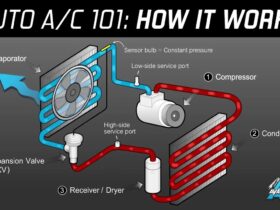

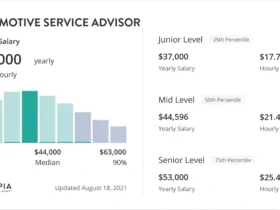
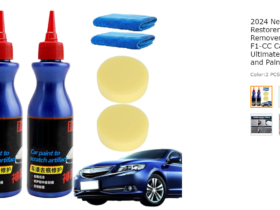
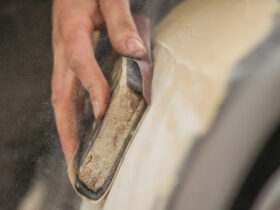
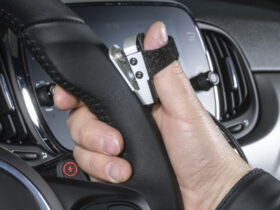
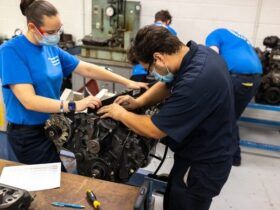
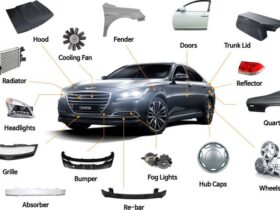

Leave a Reply